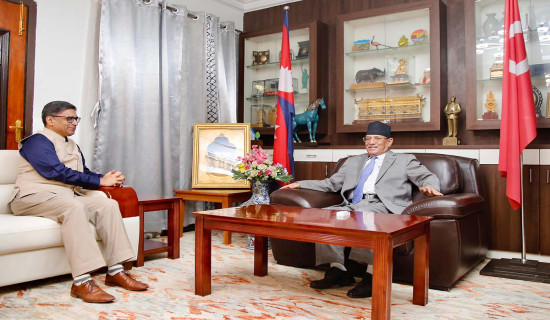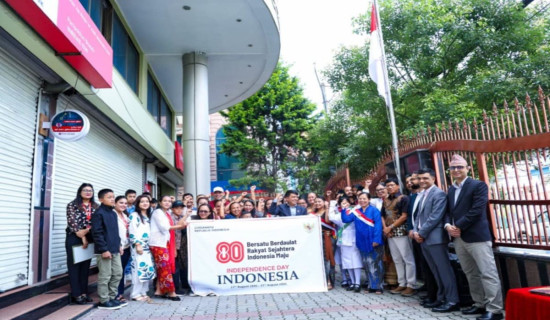- Monday, 18 August 2025
International Widows Day
It's Time to Break the Silence
Upasana Rana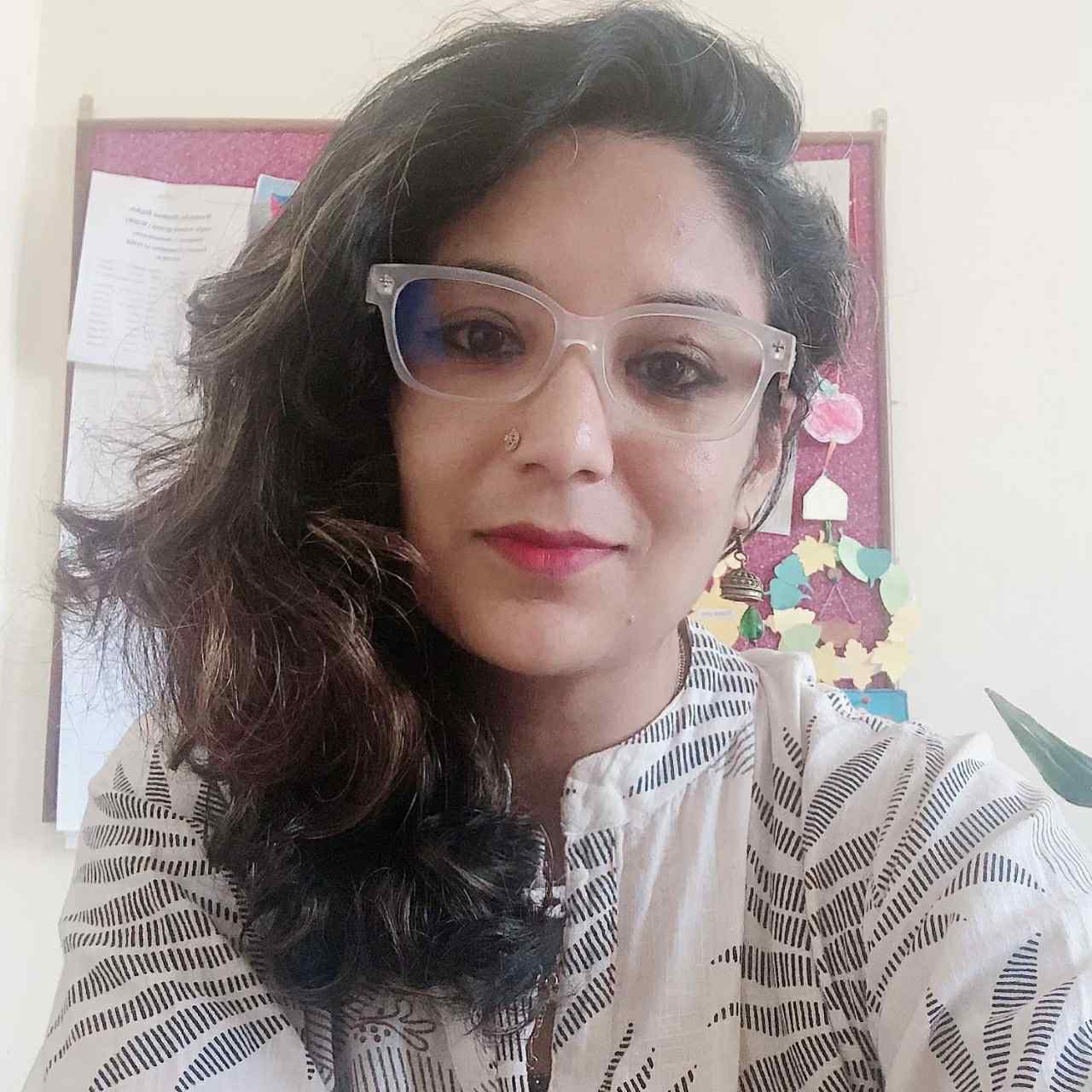
On June 23, the world marks International Widows Day, a global reminder of an issue that remains largely invisible. This year’s International Widows Day comes at a time when the world is confronting overlapping crises, wars, climate disasters, pandemics, and economic shocks. These disproportionately affect women, especially widows. Yet national policies and humanitarian responses continue to overlook their specific needs.
As the
Executive Director of Women for Human Rights (WHR), and as someone who has worked
closely with over 100,000 widows across Nepal, I witness firsthand the painful
reality of widowhood, especially in South Asia, is not just a personal loss,
but a lifelong sentence of marginalization. Widows are too often seen as
symbols of bad luck, blamed for their husbands’ deaths, and stripped of
property, dignity, and identity.
There are an estimated 258 million widows around the world, and nearly one in ten live in extreme poverty (The Loomba Foundation, 2024). According to Nepal’s 2021 Population Census, widows constitute 6.6% of the female population, more than one in every 15 women. The majority of women (71%) marry between the ages of 15-24, with 23% marrying even earlier, often before the age of 15. This early marriage sets the stage for vulnerability; these girls are pulled out of education and denied economic opportunities. When widowed young, they lack the skills and networks to assert their rights.
Among
widows, a staggering 81% are completely illiterate, locking them out of formal
economy, public services, and digital resources. Nearly 55% live alone, an
indicator not just of solitude, but of social rejection. These women are often
cast out by both their marital and natal families, increasing their exposure to
poverty, emotional isolation, and abuse.
Access to
technology and mobility is severely limited: 32% of widows lack smartphones,
76% lack internet access, and only 6% have adequate transportation or
communication facilities. In today’s world, where access to information is a
lifeline, this digital and physical exclusion pushes widows even further into
the margins.
Economically,
52.9% of widows are inactive, mainly due to household responsibilities and
age-related limitations. For younger widows, the absence of training, income,
and childcare options traps them in dependency. And for older widows, physical
fragility and a lifetime of unpaid labor deny them the dignity of financial
independence. This systemic disempowerment leaves widows vulnerable to
discrimination, exploitation, and abuse.
Among the
most burdened are widowed mothers, who are often forced to raise children alone
without support from either their husband’s family or their own. These women
face not only financial hardships but also emotional abandonment and societal
judgment. Struggling to secure a future for their children, they are often
denied access to education, healthcare, and identity documents due to their
widowhood status. Young widows, in particular, are vulnerable to exploitation,
harassment, and abuse. Isolated and economically desperate, they become easy
targets for trafficking or manipulative relationships, especially in
patriarchal settings where their autonomy is constantly controlled.
Yet despite
this exclusion, widows are not passive victims. At WHR, we have seen widows
transform their pain into power, becoming entrepreneurs, political leaders,
peacebuilders, and human rights defenders. Through collective mobilization and
legal advocacy, these women are challenging the very systems that once silenced
them.
From
Marginalization to Legal Reform
WHR has led
a nationwide movement for widows’ rights, driving several landmark legal
reforms. These include:
• They no
longer need to wait until the age of 35 to inherit their deceased husband’s
property.
• Single
women can now sell or transfer property without the consent of adult sons or
unmarried daughters.
• The
condition of remaining in the chastity of their deceased husband to claim
inheritance has been abolished.
• A
government policy providing NRs. 50,000 to men who married widows was
successfully protested and amended.
• Single
women can now obtain passports without the consent of male family members.
• The
practice of "Vaikalya" (child widow) has been officially declared
harmful and discouraged.
• WHR played
a key role in the establishment of the Single Women Protection Fund under the
Ministry of Women, Children and Senior Citizens.
These legal
victories are more than symbolic, they restore agency and dignity to countless
women. But reform is not enough. Implementation and awareness are crucial.
What Can
the World Learn from Each Other?
Other
countries are also making progress:
• Rwanda has
passed gender-sensitive inheritance laws and ensured widows were central to
post-genocide rebuilding.
• Kenya has
criminalized harmful widowhood practices like "widow cleansing,"
while civil society provides legal aid and shelters.
• India
offers widow pensions and vocational training in some states, and organizations
like the Guild of Service support abandoned widows.
• South
Africa provides grief counseling, economic literacy, and women-led cooperative
models.
• The United
Nations now calls for disaggregated data collection by marital status,
recognizing widowhood as a category for targeted policy and protection.
These
examples show what’s possible when widowhood is addressed as a rights issue,
not as charity. They underscore the urgency for Nepal and other countries to
center widows in their social protection systems, policy planning, and
development agendas.
Time to
Break the Silence
On this
International Widows Day, I call upon the government, civil society,
international actors, and the media to break the silence around widowhood.
Let us:
• End
cultural practices that stigmatize and isolate widows.
• Ensure
their access to property, inheritance, and citizenship rights.
• Provide
targeted social protection, legal aid, and trauma support.
• Recognize
widows as agents of change and not objects of pity.
Widows have
lost their partners, not their potential. It's time we saw them, heard them,
and stood with them.
(Writer Rana
is executive director, Women for Human Rights (WHR) which advocates for the
rights of single women (widows) and advancing gender equality)



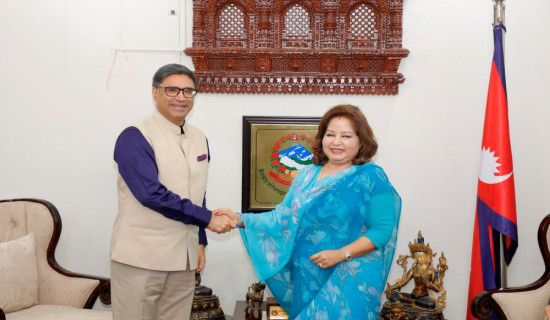
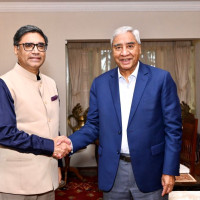
-square-thumb.jpg)

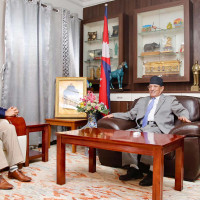
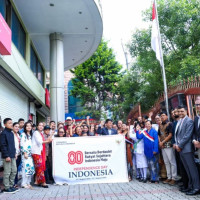
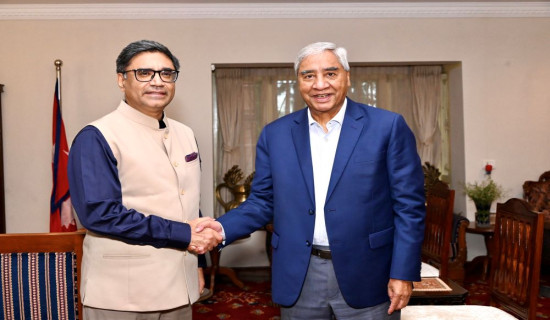
-original-thumb.jpg)

